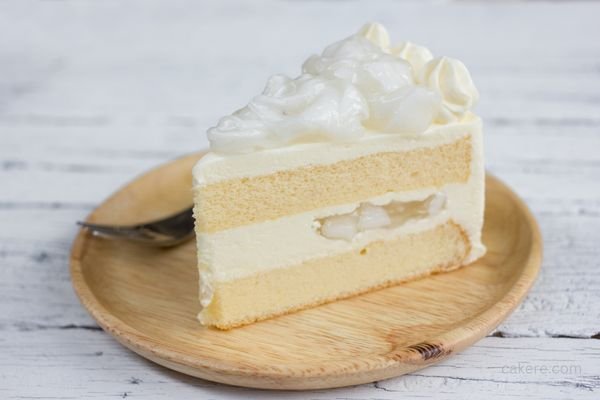Coconut cake is a delightful dessert that offers a unique blend of flavors and textures. This article explores the taste, ingredients, flavor combinations, variations, cultural significance, health benefits, and answers some frequently asked questions about coconut cake.

What is Coconut Cake?
Coconut cake is a type of cake that incorporates coconut as a key ingredient. It typically consists of a moist and fluffy cake base infused with coconut flavor, often layered with coconut cream or frosting, and garnished with shredded coconut.
This cake can be enjoyed on various occasions, from birthdays to weddings, and it’s a delightful treat for coconut enthusiasts.
Ingredients
The key ingredients used in coconut cake include flour, sugar, butter, eggs, baking powder, salt, coconut milk or shredded coconut, and sometimes coconut extract.
These ingredients work together to create a delectable cake with a tropical twist. Some recipes may also incorporate other ingredients such as vanilla extract or lemon zest to enhance the flavor profile.
Taste and Texture
Coconut cake offers a unique and refreshing taste. The combination of the cake’s sweetness, the tropical notes of coconut, and the creamy texture create a delightful experience for the palate.
The cake itself is typically moist and tender, while the shredded coconut provides a slightly chewy texture. The frosting or cream adds richness and creaminess to each bite, making it a truly indulgent treat.
Flavor Combinations
Coconut cake pairs wonderfully with a variety of flavors, allowing for creative and delicious combinations. The tropical essence of coconut blends well with tangy fruits like pineapple or mango.
Chocolate lovers can enjoy the fusion of coconut and chocolate flavors, while citrus accents from lemon or lime can add a refreshing twist. The versatility of coconut cake allows for endless flavor possibilities to suit different preferences.
Variations and Recipes
Coconut cake has numerous variations and recipes across different cultures and regions. Some variations include adding nuts or dried fruits to the cake batter for added texture and flavor.
In some regions, coconut cake is layered with custard or filled with fruit preserves. The frosting can also vary, ranging from traditional buttercream to cream cheese or even a light whipped topping. The variations in recipes ensure that there is a coconut cake to suit every taste bud.
Cultural Significance
Coconut cake holds cultural significance in many regions around the world. In some cultures, it is a staple dessert during festive occasions or religious celebrations. For example, in the Caribbean, coconut cake is often associated with Christmas festivities.
In Southeast Asia, coconut-based desserts, including coconut cake, are commonly enjoyed as a part of traditional cuisine. The cultural significance adds depth to the appreciation of coconut cake as more than just a dessert.
Health Benefits
Coconut cake, like most desserts, should be enjoyed in moderation. However, coconut itself offers some potential health benefits. Coconut contains medium-chain fatty acids, which are believed to provide quick energy and may aid in weight management.
Additionally, coconut is a source of dietary fiber and certain vitamins and minerals. It’s important to remember that the overall nutritional value of coconut cake may vary depending on the specific recipe and ingredients used.
FAQs
Yes, it’s possible to make a coconut cake without using shredded coconut. While shredded coconut adds texture and enhances the coconut flavor, you can still achieve a delicious coconut cake by using coconut milk or coconut extract in the cake batter and frosting.
If you’re not a fan of coconut milk or have dietary restrictions, you can substitute it with other types of milk such as dairy milk, almond milk, or soy milk. However, keep in mind that using coconut milk adds an authentic coconut flavor to the cake, so the taste may vary slightly with alternative milk choices.
Coconut cake should be stored in an airtight container or wrapped tightly with plastic wrap to retain its freshness. It is best stored in the refrigerator, especially if the cake contains perishable ingredients like cream or custard. Proper storage will help prevent the cake from drying out and prolong its shelf life.
Yes, you can freeze coconut cake for future enjoyment. It’s recommended to wrap the cake tightly with plastic wrap and place it in a freezer-safe container to prevent freezer burn. Thaw the cake in the refrigerator overnight before serving, and it should retain its taste and texture.
Absolutely! There are numerous vegan and gluten-free recipes available for coconut cake. Vegan variations typically use plant-based alternatives such as vegan butter and non-dairy milk, while gluten-free options often involve using gluten-free flours like almond flour or rice flour. These adaptations allow individuals with dietary restrictions to savor the delectable flavors of coconut cake.
Conclusion
In conclusion, coconut cake is a delightful dessert that offers a tropical twist to traditional cake recipes. Its unique taste, combining sweetness and the essence of coconut, along with its moist texture, make it a popular choice among dessert lovers.
Whether you enjoy it plain or explore various flavor combinations, coconut cake is sure to satisfy your cravings for a tropical treat.
